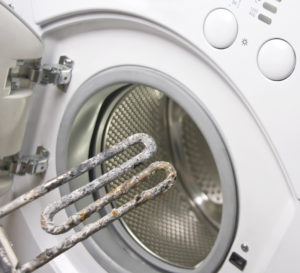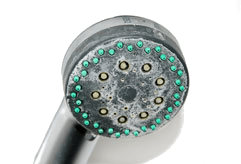
#1 Hard Water Makes Your Appliances Less Efficient
Did you know that hard water is hard on your appliances? It’s true. Hard water can reduce the efficiency of your appliances by up to 48%, according to a study by the Water Quality Association (WQA). And that decrease in efficiency can lead to a 29% increase in your energy bills–costing you $1,500 or more over a 10-year period. (And that’s just for your water heater. The same efficiency loss would affect your dishwasher and your washing machine.)#2 Hard Water Forces You To Waste More Soap & Detergent
When you have hard water, you have to use more soap, detergent, and other cleaning products. Over time, this can become a significant expense. Think about how much money you spend on dishwashing detergent, laundry detergent, bath & kitchen soap, lotions, and other household cleaners. Probably several hundred dollars a year, depending on the size of your family…and if you have hard water. (That cost could be reduced by 75% or more with soft water.)#3Hard Water Reduces the Lifespan of Your Appliances
Hard water also causes a buildup of scale that can shorten the lifespan of your appliances by 30-50%!. In another WQA study, the heating elements inside water heaters using hard water failed after just 19 months. The water heaters using non-hard water lasted much longer—up to 15 years.| Appliance Type | ||
|---|---|---|
| Dishwasher | ||
| Washing machine | ||
| Faucets | ||
| Toilets | ||
| Electric water heater | ||
| Gas water heater |
How Can You Tell if You Have Hard Water?

- Mineral buildup in sinks, bathtumbs, and on your water fixtures
- Spots on your dishes, glasses, and silverware that don’t come out in the dishwasher
- Water heaters that fail sooner than they should
- Soap scum in your bathtub or on your shower curtain/shower door
- Faded clothing (especially clothes that used to be vibrant & colorful)
- Dry, itchy skin and limp-looking hair
